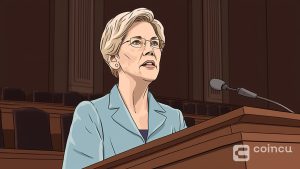Crypto Bill Creator Says India Misunderstood Private Cryptocurrency Ban
India’s crypto law creator, former Treasury Secretary Subhash Garg, dismissed the notion that banning “private cryptocurrencies” was a misnomer, while emphasizing the enormous potential of cryptocurrencies and blockchain technology.
Parliamentary discussions on a controversial cryptocurrency law have raised concerns about a crypto ban without clearly specifying the scope of the ban. As Cointelegraph reported, the announcement was followed by a panic sell-off among Indian investors. In an interview with local news channel News 18, Garg made it clear:
“[The description of the crypto bill] maybe a mistake. It would be wrong to say that private cryptocurrencies are banned and to inform the government about it. “
He believes the Indian government should develop a bill after discussing it with stakeholders and crypto investors. In addition, the bill proposes banning private cryptocurrencies without clarifying what the word “private” stands for.
As a result, the crypto community in India has self-interpreted two different versions of the bill’s agenda – one that contemplates a ban on all government-issued cryptocurrencies and the other that contemplates a ban on all government-issued cryptocurrencies that run on public blockchains like Bitcoin (BTC) and Ethereum (ETH).
Garg also pointed to a loophole in the classification of cryptocurrencies as assets after highlighting the vast ecosystem supported by disruptive technology. He also said that cryptocurrency exchanges have limited interests and do not represent the entire community:
“You don’t classify the wheat you produce or the clothes you produce as property. It is too easy to think of this as a property. “
In conclusion, Garg added that Central Bank Digital Currency (CBDC) initiatives are complex, especially in countries like India. According to him, the government must first address challenges, including the lack of smartphones and the issue of digital wallets.
Related: Singapore’s crypto exchange enters India amid regulatory uncertainty
The Indian crypto market continues to attract international players, most recently Coinstore, a Singaporean cryptocurrency exchange. As Cointelegraph reported, Coinstore has raised a $ 20 million fund to build three new offices in the region.
Speaking to Cointelegraph, a Coinstore spokesman hopes to develop an active crypto regulatory framework:
“Strict KYC processes, security requirements for exchanges and the gradual regulation of certain cryptocurrencies will of course protect Indian users and clarify their legitimacy for certain cryptocurrencies.”
.
.



















